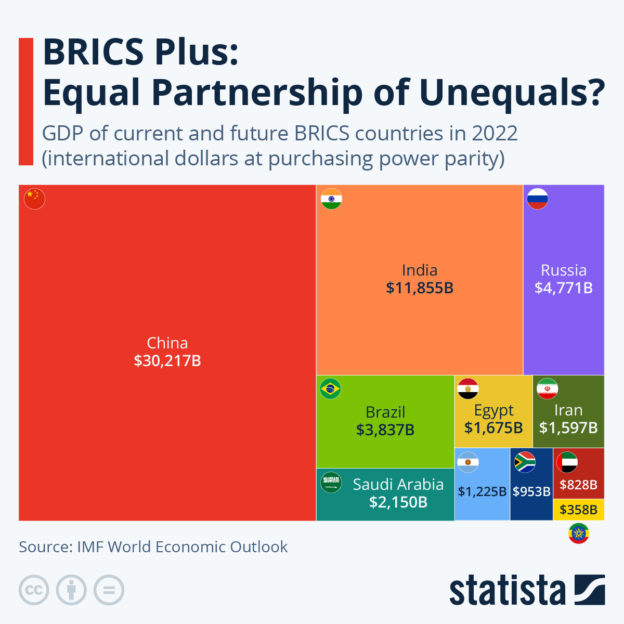When South Africa’s president Cyril Ramaphosa announced the expansion of BRICS in a media briefing at the end of last week’s summit in Johannesburg, South Africa, he described the bloc as “an equal partnership of countries that have differing views but have a shared vision for a better world.” With the addition of Iran, Saudi Arabia, Egypt, Ethiopia, Argentina and the United Arab Emirates, the new BRICS will represent 46 percent of the world population and account for roughly 37 percent of global GDP when measured at purchasing power parity. Whether it will really be an “equal partnership” remains to be seen, however, as China’s economic dominance within the group is quite striking.
Looking at 2022 GDP in international dollars at purchasing power parity, China’s economy is two and a half times the size of India’s, the second largest economy withing the bloc. Even more strikingly, the GDP of the remaining nine (future) BRICS members combined adds up to just over half of China’s economic output, making it hard to imagine China’s voice having an equal weight in future negotiations within the group. As a recent Pew Research Group survey revealed, China’s role on the world stage is viewed with a lot of skepticism even among its partners, with the majority of respondents in India, Brazil and Argentina thinking that China would barely take their own country’s interests into account when making international policy decisions.
https://www.statista.com/chart/amp/30684/gdp-of-brics-members/





